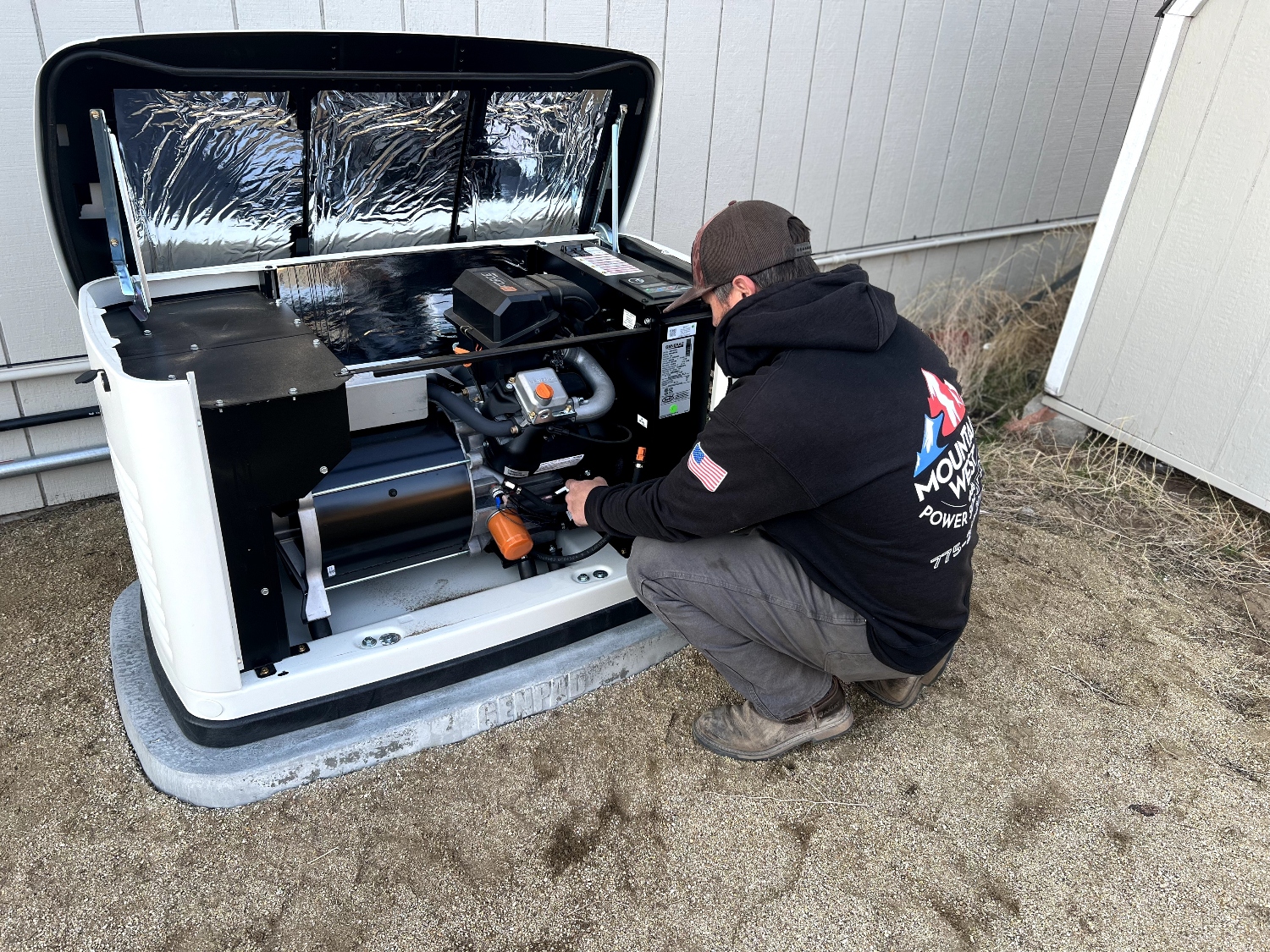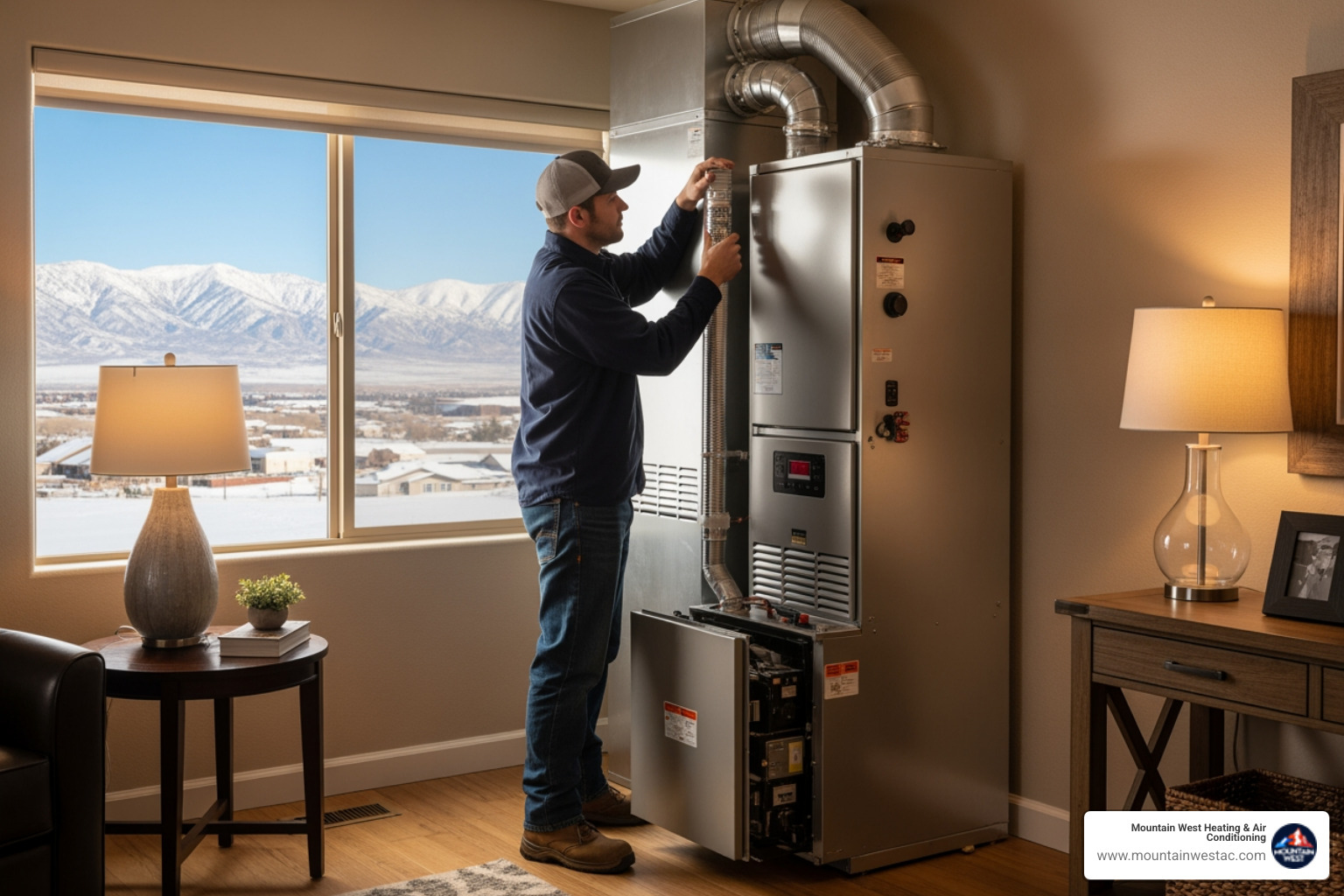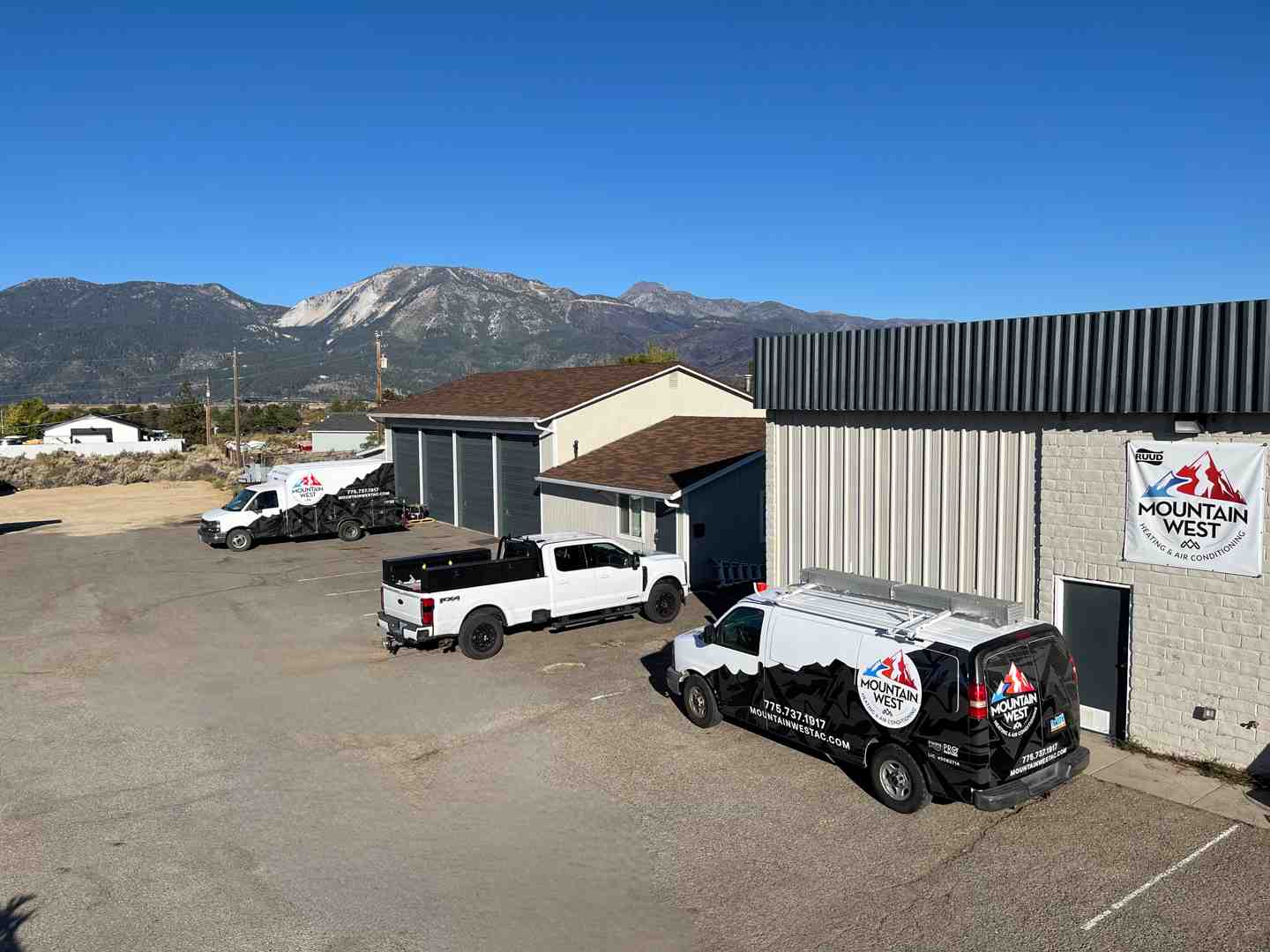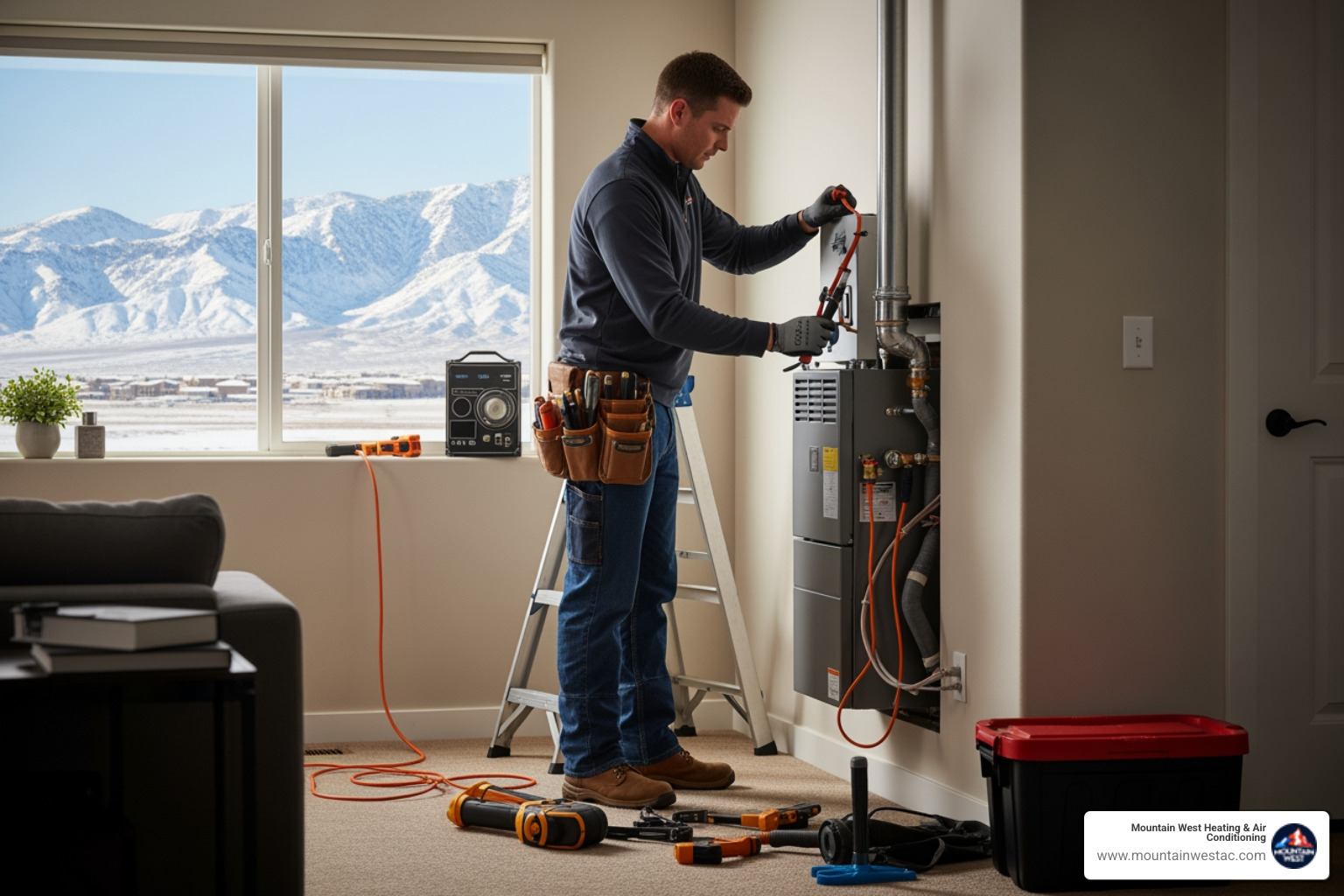Home generator repair ensures backup power during outages. When a generator fails to start or runs poorly, homeowners face the choice between attempting repairs themselves or calling professionals.
Most generator problems can be diagnosed through basic troubleshooting, but complex electrical and engine issues require trained technicians to ensure safe and reliable operation.
The key to keeping a home generator running smoothly lies in knowing the warning signs of trouble, performing regular maintenance, and finding qualified repair services when needed. Proper care extends the generator's lifespan and ensures it will work when power goes out.
In this article, you’ll learn how to approach home generator repair, spot early warning signs, and choose when DIY fixes are safe versus when to call a pro.
Here’s what you need to know:
- Understanding home generator repair basics
- DIY troubleshooting vs. professional repair
- The importance of preventive maintenance
- Choosing a trusted generator repair company
Keep reading! Understanding when to handle repairs personally versus when to seek professional help can save both money and prevent dangerous situations.
Understanding home generator repair basics
Home generators serve as reliable backup power systems that require proper maintenance and timely repairs to function effectively. Knowing how these systems protect your home, recognizing common failure points, and identifying early warning signs helps homeowners maintain consistent emergency power when they need it most.
How home generators protect your comfort during outages
Home generators automatically detect power outages and restore electricity within seconds. They monitor the electrical supply from the utility company through an automatic transfer switch.
When the main power fails, the transfer switch signals the generator to start. The generator's engine converts fuel into mechanical energy. The alternator then transforms this mechanical energy into electrical power.
Key Protection Features:
- Automatic operation - No manual intervention required
- Seamless transition - Power restoration in 10-20 seconds
- Load management - Prioritizes essential circuits first
- Weather resistance - Operates in various outdoor conditions
The system powers critical appliances like refrigerators, heating systems, and lights. This prevents food spoilage, maintains comfortable temperatures, and ensures safety lighting throughout the home.
Modern generators include smart monitoring systems. These systems track fuel levels, engine performance, and electrical output. They send alerts to homeowners about maintenance needs or operational issues.
Common issues that lead to generator breakdowns
Fuel system problems cause many generator failures. Old fuel can clog filters and damage engine components. Water contamination in fuel tanks creates corrosion and poor combustion.
Engine-Related Issues:
- Dirty air filters restricting airflow
- Spark plug wear causing poor ignition
- Low oil levels leading to engine damage
- Cooling system blockages creating overheating
Battery problems prevent automatic startup during outages. Corroded terminals and dead batteries are frequent culprits. The charging system may also fail to maintain proper battery voltage.
Transfer switch malfunctions disrupt the connection between generator and home electrical systems. Loose wiring connections and worn contacts cause these failures.
Control system errors stop generators from responding to power outages. Faulty sensors and damaged control boards require emergency power repair by trained technicians.
Regular maintenance prevents most of these issues. However, environmental factors like extreme weather can accelerate component wear and create unexpected breakdowns.
Warning signs your generator may need immediate repair
Strange noises during operation indicate internal engine problems. Knocking sounds suggest worn bearings or combustion issues. Grinding noises often point to damaged starter components.
Visual Warning Signs:
- Black or white smoke from exhaust
- Fuel leaks around the engine or tank
- Rust or corrosion on metal components
- Loose or frayed electrical connections
Performance issues become apparent during testing cycles. The generator may struggle to start or run roughly once operating. Power output fluctuations affect connected appliances.
Dashboard warning lights alert owners to specific problems. Low oil pressure warnings require immediate attention. High temperature alerts indicate cooling system failures.
Unusual fuel consumption patterns suggest engine inefficiency. A generator using significantly more fuel than normal needs professional inspection.
Failed weekly test cycles represent serious operational problems. Generators that won't start during routine testing will likely fail during actual power outages. These situations demand immediate emergency power repair to restore reliability.
DIY troubleshooting vs. professional repair
Basic maintenance and simple checks can be safely performed by homeowners, while complex electrical work and major component failures require trained technicians. Professional diagnostics also help identify potential problems before they cause expensive breakdowns.
Simple checks you can perform safely at home
Oil and Fuel Inspection Check the oil level using the dipstick when the generator is cool and on level ground. Dark or thick oil needs changing. Look for fuel leaks around the tank and lines.
Air Filter Maintenance Remove the air filter cover and inspect the filter element. A dirty filter restricts airflow and reduces performance. Paper filters should be replaced, while foam filters can be cleaned with soap and water.
Basic Visual Inspection Look for loose bolts, frayed wires, or damaged housing. Check that air vents are clear of debris. Listen for unusual noises when the generator runs.
Battery and Connections Test battery voltage with a multimeter. Clean corroded terminals with baking soda and water. Ensure all electrical connections are tight and free of corrosion.
Control Panel Functions Test the start/stop switch and check warning lights. Verify that the transfer switch operates properly during a test run.
These whole home generator troubleshooting steps help identify common issues. Always turn off the generator and let it cool before performing any checks.
Why certain repairs should only be handled by certified technicians
Electrical System Repairs Generator electrical systems operate at dangerous voltages that can cause serious injury or death. Technicians have specialized tools and training to work safely with high-voltage components.
Gas Line and Fuel System Work Natural gas and propane connections require proper licensing and leak testing equipment. Improper installation can cause fires, explosions, or carbon monoxide poisoning.
According to the U.S. Environmental Protection Agency, carbon monoxide from improperly used generators is a major threat during power outages, and exposure can quickly cause serious harm or death—underscoring the need for qualified, code-compliant service.
Engine Overhauls Major engine repairs involve precise tolerances and specialized tools. Incorrect reassembly can cause catastrophic failure and void warranties.
Transfer Switch Installation Whole home generator transfer switches must be properly integrated with home electrical panels. Mistakes can damage appliances or create dangerous back-feed conditions.
Warranty Considerations Most manufacturers require certified technician installation and service to maintain warranty coverage. DIY repairs on covered components void these protections.
Professional technicians carry insurance and follow safety codes that protect homeowners from liability and ensure repairs meet local regulations.
How professional diagnostics prevent future failures
Advanced Testing Equipment Technicians use digital multimeters, oscilloscopes, and compression testers to identify problems that basic visual checks miss. These tools measure electrical output, engine performance, and system efficiency.
Predictive Maintenance Professional inspections catch worn parts before they fail completely. Technicians check valve clearances, inspect internal components, and test protective systems.
System Integration Analysis Whole home generator troubleshooting requires understanding how the generator, transfer switch, and home electrical system work together. Professionals identify compatibility issues and load imbalances.
Documentation and Tracking Certified technicians maintain service records that track component wear patterns and maintenance schedules. This history helps predict when parts will need replacement.
Code Compliance Professional diagnostics ensure generators meet current safety codes and manufacturer specifications. Regular professional service prevents small problems from causing expensive system failures or safety hazards.
The importance of preventive maintenance
Regular generator maintenance keeps backup power systems working when families need them most. Proper care prevents costly breakdowns and helps generators last longer through scheduled service and inspections.
According to the U.S. Department of Energy’s Federal Energy Management Program, well-practiced operations and maintenance is one of the most cost-effective ways to ensure reliability, safety, resiliency, and energy efficiency in critical equipment.
How routine maintenance extends your generator's lifespan
Oil changes form the foundation of generator care. Clean oil lubricates moving parts and prevents engine damage. Most generators need oil changes every 100 hours of use or twice per year.
Filter replacements keep dirt and debris out of the engine. Air filters should be checked monthly and replaced when dirty. Fuel filters need replacement every 200-300 hours to maintain proper fuel flow.
Load testing verifies the generator can handle its full electrical capacity. This test should happen every six months to identify potential problems before they cause failures.
Battery maintenance ensures reliable starting during power outages. Batteries need cleaning and testing every three months. Weak batteries are a common cause of generator startup failures.
Regular inspections catch small problems before they become expensive repairs. Technicians check belts, hoses, and electrical connections during each service visit.
Seasonal care to keep your standby generator ready
Spring preparation includes checking coolant levels and testing the automatic transfer switch. Winter weather can affect fluid levels and electrical connections.
Fuel system care prevents clogged lines and injectors. Diesel fuel should be tested for contamination every six months. Gas generators need fuel stabilizer if they sit unused for long periods.
Summer maintenance focuses on cooling system performance. Clean air intakes prevent overheating during hot weather operation. Check cooling fans and radiator fins for blockages.
Fall service prepares generators for winter storm season. This includes battery testing, oil changes, and exercising the unit under load. Cold weather makes starting more difficult for poorly maintained units.
Standby generator service should include monthly automatic test runs. These brief exercises keep fuel fresh and identify problems before emergencies occur.
Cost-saving benefits of regular inspections and tune-ups
Preventive maintenance costs much less than emergency repairs. A typical service call costs $150-300, while major engine repairs can exceed $3,000.
Early problem detection saves money on parts and labor. Small issues like loose connections or dirty filters are inexpensive to fix. Ignoring these problems leads to component failures.
Regular tune-ups improve fuel efficiency by 10-15%. Clean air filters and proper engine timing reduce fuel consumption during operation.
Warranty protection requires documented maintenance records. Manufacturers may deny claims for generators without proper service history.
Well-maintained generators have higher resale values. Service records show potential buyers that the unit received proper care throughout its life.
Scheduled maintenance prevents downtime during critical periods. Families avoid the stress and expense of losing power when their generator fails unexpectedly.
Choosing a trusted generator repair company
Finding the right repair company requires checking their technicians' qualifications and asking the right questions upfront. A reliable company will have certified professionals and clear service policies.
What to look for in a qualified repair technician
Certification and Training are the most important factors. Professional generator technicians should have certifications from major brands like Generac, Kohler, or Cummins. These certifications show they know specific generator models and repair methods.
Experience with Your Generator Type matters greatly. Whole-house generators are different from portable units. Technicians should have hands-on experience with your specific brand and model.
Licensing and Insurance protect homeowners from liability. Check that the company has proper business licenses and carries both general liability and workers' compensation insurance.
Look for technicians who can explain problems clearly. They should answer questions without using too much technical language. Good technicians also provide written estimates before starting work.
How Mountain West AC ensures reliable service and safety
Mountain West AC employs certified technicians who receive ongoing training on the latest generator technology. Their team carries proper licensing and maintains comprehensive insurance coverage for all repair work.
Safety protocols are strictly followed during every service call. Technicians use proper testing equipment to check electrical connections and gas lines safely. They also follow manufacturer guidelines for all repairs.
Quality parts and warranties back up their work. The company uses genuine manufacturer parts when possible and provides warranties on both parts and labor. This gives customers confidence in the repair quality.
Their technicians arrive with fully stocked service vehicles. This means most repairs can be completed in one visit without waiting for parts.
Questions to ask before scheduling your generator repair
What are your technician qualifications? Ask about certifications, training, and experience with your generator brand. The company should provide clear answers about their team's credentials.
Do you provide written estimates? Get repair costs in writing before work begins. This prevents surprise charges and helps you compare different companies.
What warranty do you offer? Ask about warranties on both parts and labor. Most reputable companies offer at least 90 days on repair work.
Are you licensed and insured? Request proof of business licenses and insurance certificates. This protects you if something goes wrong during the repair.
How quickly can you respond? Ask about typical response times for both regular service and emergency calls. Some companies offer same-day or next-day service.
Financing options for home generator repair
Get critical repairs done now and spread costs over predictable monthly payments through our partnership with Synchrony Financing (subject to credit approval). You can finance diagnostic fees, parts, and labor for issues like control board failures, transfer switch repairs, batteries, and scheduled home generator maintenance—so you’re not waiting when outage season hits.
- Programs available: promotional APR offers (including deferred-interest promos for qualified buyers), fixed-rate plans from 12–84 months, and select zero-down options.
- Why it helps: preserve cash for emergencies, avoid delaying essential backup power service, and keep your system reliable.
- How to apply (fast):
- Visit the financing page
- Apply via Synchrony’s secure form (instant decisions in many cases)
- Choose terms, e-sign, and schedule your repair window\
Note: Financing is provided by Synchrony; eligibility, APRs, and terms vary by program and applicant profile. No prepayment penalties on most plans.
Build your home generator repair estimate online
Get a transparent repair range before you book. Our guided form turns your inputs into a tailored price window and next steps, so you can compare options confidently.
- What you’ll input (5–7 minutes): brand/model, kW size, fuel type (NG/LP), age, error codes, symptoms (won’t start, surging, won’t transfer), recent service history, and clear photos of the install and control panel.
- What you’ll receive: a ballpark for parts + labor, likely lead times, and scheduling options for a same-day or next-day diagnostic.
- Accuracy checklist: include panel photos, transfer switch model numbers, and distances (feet) for gas/electrical runs to flag access constraints early.
Start now with the estimate builder
Conclusion
Home generator repair requires both knowledge and careful decision-making. Homeowners who understand basic troubleshooting can handle simple issues themselves.
DIY repairs work well for basic issues like clogged filters or loose connections. More complex electrical or engine problems require trained technicians.
Homeowners save money by learning simple maintenance tasks. These include checking oil levels, replacing air filters, and testing the unit monthly.
The decision between repair and replacement depends on the generator's age and condition. Units over 10 years old with frequent breakdowns may need replacement.
Proper repair and maintenance extend generator life significantly. A well-maintained unit provides reliable backup power for many years.
Homeowners should keep repair records and follow manufacturer guidelines. This helps track problems and maintains warranty coverage.
Emergency situations demand working generators. Regular inspection and prompt repairs ensure the unit works when needed most.
Professional technicians offer expertise and proper tools for complex repairs. They also provide warranties on their work and parts.
Smart homeowners balance DIY maintenance with professional service. This approach keeps generators running while controlling repair costs.
Schedule a same-day diagnostic or request a written home generator repair estimate with Mountain West AC—apply through Synchrony Financing and book your service now.









